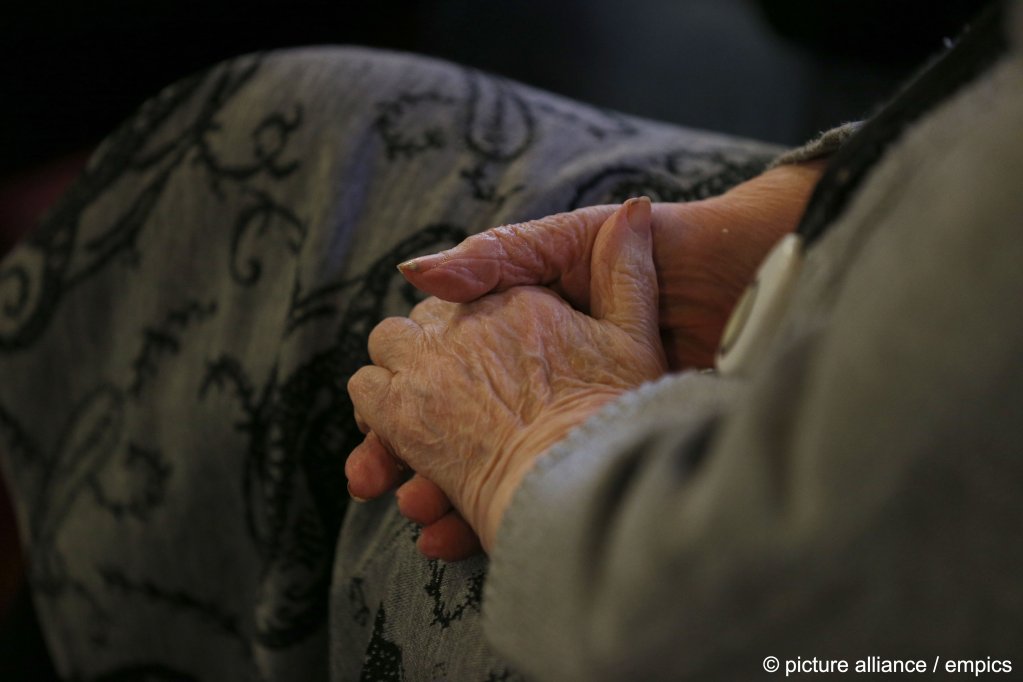It is hoped that a new healthcare charter agreement might better protect the rights of migrant care workers in Britain, after many faced deportation, when the licences of the companies they worked for were revoked by the government in 2022 and 2023.
A local government council in the UK has signed a charter agreement that will ensure better protections for migrant care workers if they leave their employer or lose their job, the British newspaper The Guardian reported on Monday (November 4).
Salford Council in the northwest, part of Greater Manchester, is the first to adopt the migrant care workers' charter which aims to prevent the exploitation of people who come to the UK on employer-sponsored visas.

The charter commits signatories like Salford Council to act as an "employer of last resort" for care workers at risk of losing their migration status after unfair job loss, helping them remain in the UK for long enough to find a replacement job. Signatories also pledge to create an "ethical recruiter list" to prevent public funds from reaching exploitative employers.
UNISON, the UK's largest trade union with over 1.3 million members, developed the 7-point charter agreement together with care workers after dozens of migrant employees from India and Nigeria had complained of unpaid wages or had lost their jobs and faced deportation.
No employer, no visa
"Migrant workers play an essential role in our communities, yet too often they’re undervalued and exploited. The charter guarantees migrant workers better protection and help in finding employment should they lose their job," a UNISON spokesperson told InfoMigrants.
The provisions of the Health and Care Worker Visa state that if they lose their job, a worker has 60 days to find a new employer who will sponsor their visa or apply for a different visa that will allow them to remain in the UK. Failure to do so would result in the cancellation of their health and care worker visa and possible deportation.
Speaking to The Guardian, Salford mayor Paul Dennett said, "I hope many other local authorities across the country, especially Labour-controlled ones who have a historic responsibility to work hand in hand with trade unions, commit to [it] just as we have, and begin the fightback against the exploitative conditions in this sector because ultimately, better conditions for care workers mean better standards of care for residents."
Last year, a care home in Salford City was closed because the landowners wanted to demolish it to make way for the construction of an apartment building. The closure of the care home could not be prevented, but UNISON intervened to help the staff secure their back pay and help them find a new job.
After, a group of Indian workers on sponsored visas reported not being paid proper wages and the dismissal of their leader for confronting the company. UNISON was reportedly able to help the workers win back thousands of pounds in owed earnings, get the labor leader his job back, and enter into a recognition agreement with the company.
Opening the floodgates of migration
Scrambling to fill in its gaping hole of vacancies in the medical and social work sectors, the UK launched the Health and Care Worker Visa in 2020. The visa allowed foreign nationals to work for a government-approved UK employer and live and work in the UK for three to five years. Qualified individuals could bring in their dependents. In addition, the visa offered an option for visa extension and a pathway to settle permanently in the UK.
Thousands of job seekers from all over the world applied for the visa even if many of the recruitment agencies promising to deal with the applications were reportedly charging upwards of 18,000 pounds (around 21,648 euros) in handling fees. Government data show that in the year ending June 2023, about 121,290 visas were granted.
It was around 2023 when the first cracks in the visa system began to show. Speaking to InfoMigrants in June, Rumbidzai Bvunzawabaya, a solicitor who works with many migrant care workers and the companies that employ them, pointed out government lapses in the monitoring and regulation of the health and care worker visa regime.
Legal route piggy-backed by scammers
A demand for employees, partly compounded by Brexit when many of the EU workforce decided to leave meant that many were keen to access this new legal migration route into the UK. About 34,000 companies came rushing in to register themselves and sponsor healthcare workers, many with no track record in the sector. Certificates of sponsorships were reportedly faked and company websites cloned. According to Bvunzawabaya, some workers were reportedly falsely recruited in the name of legitimate companies whose names had been used by scammers and middlemen who pocketed the recruitment fees.
A report by The Bureau of Investigative Journalism (TBIJ) in May revealed that partly in response to this, the government revoked the licenses of 122 companies in 2022 and 2023, resulting in nearly 3,000 care workers having their sponsorship canceled.
Workers who depended on their employment sponsorship for their livelihood found themselves suddenly with no job and only 60 days to find a new one or else face getting deported.
For many migrant care workers, this meant possibly never recovering the thousands of pounds they spent to relocate to the UK.
Read AlsoUK: 'Sold a pipe dream?' How thousands of care workers risk deportation after paying for visas
Importing workers from abroad
The government-supported National Health Service (NHS) has been straining to provide the necessary care for the country’s population. In 2023, the British newspaper The Guardian reported that the NHS was operating with 154,000 fewer full-time staff in medical occupations that included doctors, nurses, and dentists. If the current worker shortage trend continues, the NHS is projected to need 571,000 staff by 2036.

An estimated 14.5 million people (equivalent to about 15 percent of the population) in the UK are aged 60 or older. Brexit worsened workforce shortages by restricting the previously free movement of UK and EU citizens for travel, residence, and work. Recruiting skilled workers from overseas is a key strategy for the UK to care for its aging population.
Government data indicates that 89,095 Health and Care Worker visas were granted in the year ending June 2024, representing a 26 percent decrease compared to the previous year.
